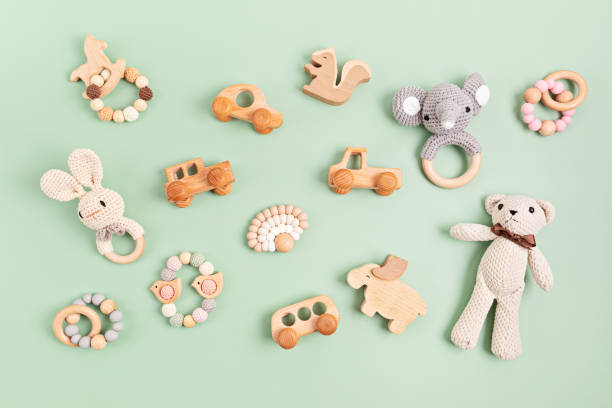Do you have a passion for creating beautiful, handcrafted items? Turning that passion into a profitable business from the comfort of your home is more achievable than you might think. Starting a handmade gift business offers a unique opportunity to monetize your creativity, connect with customers on a personal level, and build a brand that truly reflects your values.
When I first started crafting, I made all sorts of things, but I struggled to find a market for my creations. It felt like I was shouting into a void. Everything changed when I decided to focus on personalized baby gifts. I started engaging with local moms’ groups online and in person, and suddenly, my business took off. That’s the power of finding your niche and connecting with your audience.
This guide will walk you through the essential steps to launch and grow your own successful handmade gift business. We’ll cover everything from finding your unique product idea to navigating the legal requirements and marketing your creations to a global audience. By the end of this post, you’ll have a clear roadmap to turn your crafting hobby into a thriving home business.
Finding Your Niche

The handmade market is vast, so standing out is key. The first step is to identify a niche—a specialized segment of the market for a particular kind of product or audience. A well-defined niche helps you target your marketing efforts, build a loyal customer base, and become a go-to expert in your field.
Identify Your Unique Product Offering
Start by thinking about what you love to create. What crafts are you skilled at? What materials do you enjoy working with? Your passion will be the fuel that keeps your business running.
Consider these questions:
- What are you passionate about? Do you love knitting, woodworking, candle making, or jewelry design?
- What problems can you solve? Can you create personalized gifts for hard-to-shop-for relatives? Or maybe eco-friendly products for conscious consumers?
- What trends are you seeing? Look at platforms like Pinterest, Instagram, and Etsy to see what’s popular. Can you put a unique spin on a current trend?
Analyze Your Target Market
Once you have a product idea, you need to know who you’re selling to. Your target audience is the specific group of people most likely to buy your products. Understanding their needs, preferences, and pain points will help you tailor your products and marketing messages effectively.
For example, if you decide to make personalized baby gifts, your target audience might be new parents, grandparents, and friends looking for unique baby shower presents. You would market your products on platforms and in communities where these individuals spend their time.
Business Plan Basics

A solid business plan is your roadmap to success. It doesn’t need to be a hundred pages long, but it should outline your goals and how you plan to achieve them. When I started, I underestimated the importance of this. It wasn’t until I meticulously tracked my expenses and sales that I truly understood my profit margins and potential for growth.
Your business plan should include:
- Executive Summary: A brief overview of your business concept, mission, and vision.
- Market Analysis: Research on your industry, target market, and competitors (like Etsy, Amazon Handmade, and other artisans).
- Products and Services: A detailed description of what you’ll be selling.
- Marketing and Sales Strategy: How you’ll reach your target audience and convert them into customers.
- Financial Projections: An estimate of your startup costs, pricing strategy, and expected revenue.
Setting Up Shop: The Practical Steps
With a plan in place, it’s time to get practical. This involves creating a dedicated workspace, sourcing your materials, and handling the necessary legal paperwork.
Creating Your Workspace
You don’t need a huge studio to start. A dedicated corner in your living room, a spare bedroom, or even a well-organized desk can work. The key is to have a space where you can create efficiently and store your supplies without them taking over your home.
Gathering Supplies
Find reliable suppliers for your raw materials. Look for vendors that offer quality products at a reasonable price. Buying in bulk can often save you money, but be careful not to over-invest in inventory before you’ve validated your product ideas.
Handling Legal Requirements
Navigating the legal side of a business can feel daunting, but it’s a crucial step. Here’s a checklist of common legal requirements:
- Business Registration: Register your business name and choose a legal structure (sole proprietorship is often the simplest for a one-person business).
- Permits and Licenses: Check with your local city or county government for any required permits, such as a seller’s permit or home occupation permit.
- Tax Obligations: Familiarize yourself with federal, state, and local tax requirements. You’ll likely need to collect sales tax and pay income tax on your profits.
- Intellectual Property: If you create original designs, consider protecting them with copyrights or trademarks.
- Zoning Laws: Make sure your home is zoned for business activities, especially if you plan to have customers visit.
Branding and Marketing Your Handmade Gifts

Your brand is more than just a logo; it’s the story you tell and the feeling customers get when they interact with your business. Effective marketing gets that brand story in front of the right people.
Creating a Strong Brand Identity
Your brand identity should be consistent across all your platforms. This includes your business name, logo, color palette, and the tone of voice you use in your communications. It should reflect the style and quality of your handmade products.
Building an Online Presence
- Social Media Marketing: Platforms like Instagram and Pinterest are perfect for visual products. Showcase your gifts with high-quality photos and videos, share behind-the-scenes content, and engage with your followers.
- Content Marketing: Start a blog or a YouTube channel to share tutorials, crafting tips, and stories about your products. This establishes you as an expert and attracts potential customers.
- Email Marketing: Build an email list to communicate directly with your most loyal customers. Send newsletters with updates, promotions, and exclusive content.
- SEO Optimization: If you have your own website (on platforms like Shopify) or an Etsy shop, use relevant keywords in your product titles and descriptions to help people find you through search engines.
Sales and Fulfillment
Now for the exciting part: making sales! You need a system for processing orders, accepting payments, and getting your beautiful products into the hands of your customers.
Choosing Your Sales Channels
You can sell your handmade gifts in several places:
- Online Marketplaces: Etsy and Amazon Handmade are popular choices because they have a built-in audience of buyers looking for handmade goods.
- Your Own Website: Platforms like Shopify or Squarespace give you more control over your branding and customer experience.
- Local Craft Fairs and Markets: In-person events are a great way to connect with customers and get immediate feedback.
Shipping and Customer Service
Develop a clear and efficient shipping strategy. Offer transparent shipping costs and provide tracking information. Excellent customer service is paramount. Respond to inquiries promptly, handle any issues with grace, and consider including a handwritten thank-you note in your packages to add a personal touch.
Scaling and Growing Your Business

Once your business is up and running, you can start thinking about growth.
- Reinvest Profits: Use a portion of your profits to buy better equipment, invest in marketing, or expand your product line.
- Expand Your Offerings: Listen to customer feedback and market trends to introduce new products that align with your brand.
- Build a Team: If you find yourself overwhelmed with orders, consider hiring help for tasks like packing, shipping, or even production.
Why a Handmade Gift Business Stands Out
In a world of mass-produced goods, a handmade business offers something special. This is your unique selling proposition (USP).
- Uniqueness and Originality: Each item is one-of-a-kind.
- Personalization: You can offer customizations that big retailers can’t.
- High-Quality Craftsmanship: Your attention to detail results in a superior product.
- Emotional Connection: Your gifts carry the story of their creator, making them more meaningful.
- Supporting Local Artisans: Customers feel good about supporting a small, independent business.
FAQ Start Your Handmade Gift Business From Home
How much does it cost to start a handmade gift business from home?
Startup costs can be very low. You might only need to spend money on initial supplies, business registration fees (which can be under $100), and platform fees for sites like Etsy. You can start with as little as a few hundred dollars.
What are the most profitable handmade gifts to sell?
Profitable items often include personalized jewelry, custom home decor, handmade candles, and unique baby gifts. The key is to find a product with a high perceived value and reasonable material costs.
Do I need a business license to sell handmade goods online?
This depends on your location. Most cities and states require you to have a business license or seller’s permit to sell goods, even online. Check with your local small business administration office.
How do I protect my handmade designs from being copied?
You can protect your original designs through copyright. For your brand name and logo, you can register a trademark. While it can be difficult to prevent copying entirely, taking these steps gives you legal recourse.
What’s the best way to price my handmade gifts for profit?
A common formula is: (Cost of Supplies + Your Labor Time) x 2 = Wholesale Price. Then, Wholesale Price x 2 = Retail Price. Don’t undervalue your time and skill!
Your Next Steps
Starting a handmade gift business from home is a journey filled with creativity, challenges, and immense rewards. By finding your niche, creating a solid plan, and connecting with your customers, you can build a business that is both profitable and personally fulfilling.
You have the skills and the passion. Now it’s time to take that first step. Start brainstorming your product ideas, research your target market, and begin building the business of your dreams.
What handmade gifts are you most passionate about creating? Share your ideas in the comments below!
